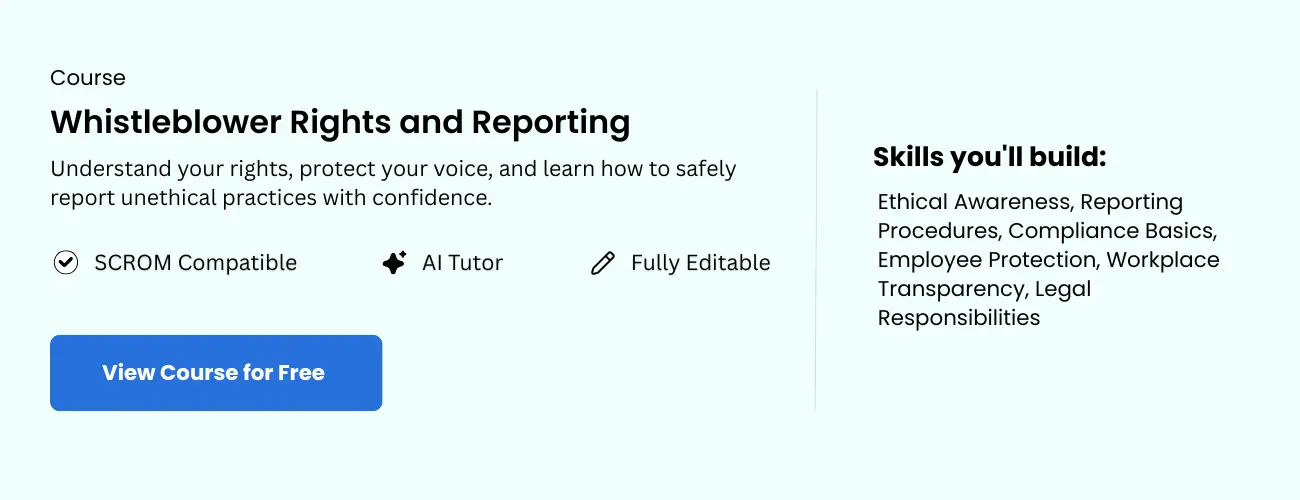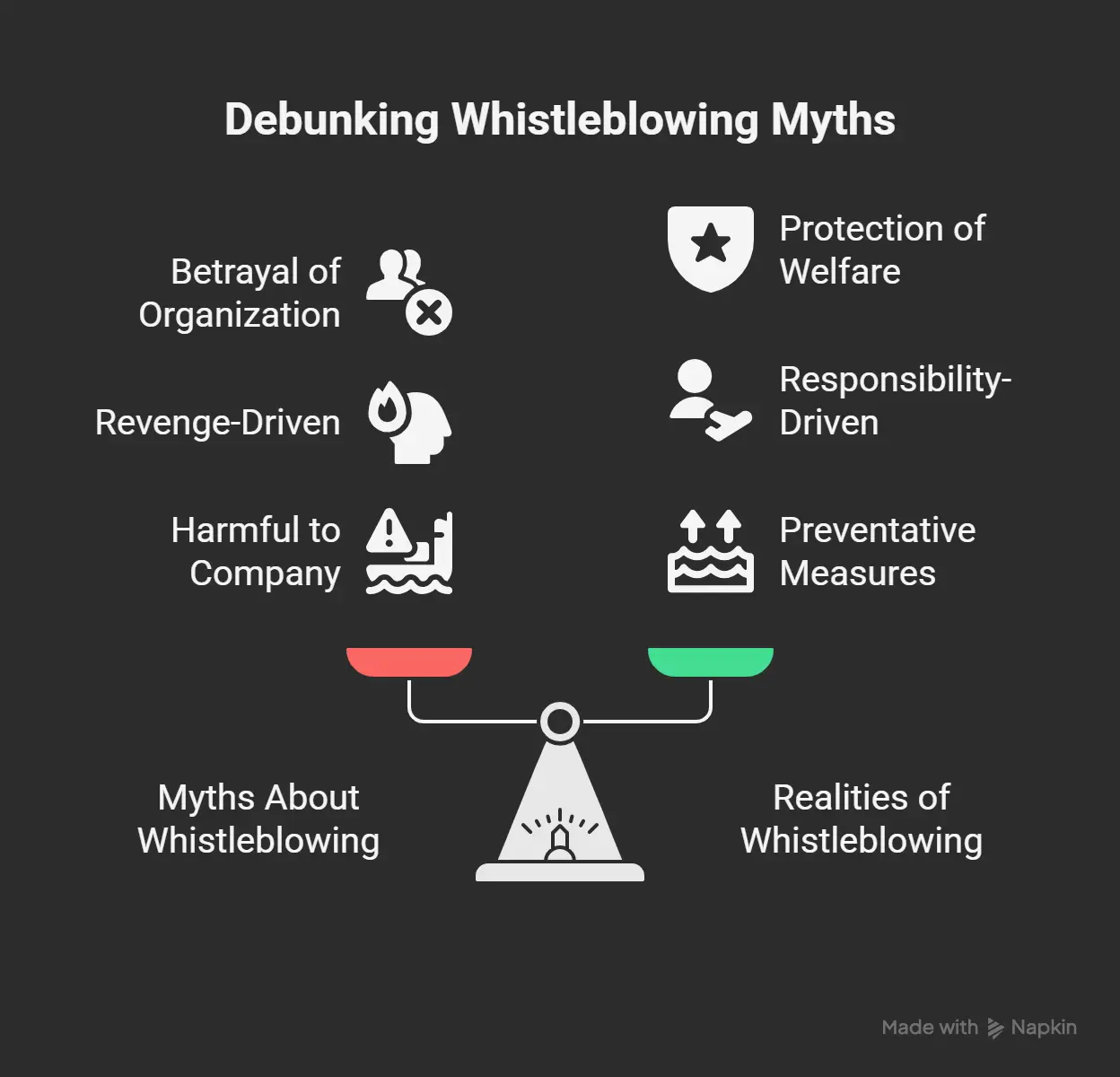Debunking Common Whistleblowing Myths: Why Speaking Up Strengthens Organizations
Whistleblowing is one of the most effective mechanisms for uncovering misconduct, fraud, corruption, and unethical behavior within organizations. Yet, despite its importance, whistleblowing remains misunderstood due to persistent myths and misconceptions. These myths often prevent employees from speaking up, which is why whistleblower training for employees is essential. Without proper awareness and education, serious issues can go unnoticed until they cause financial, legal, or reputational damage.
This blog breaks down the most common myths surrounding whistleblowing and explains why embracing transparency supported by consistent whistleblower training for employees is essential for building a resilient and ethical workplace.
Myth 1: Whistleblowing Is an Act of Disloyalty
One of the biggest misconceptions is that employees who report wrongdoing are betraying their organization. In reality, whistleblowing is an act of loyalty — it protects the company from internal threats that could harm its people, finances, or reputation.
When employees speak up about issues like fraud, harassment, safety violations, or policy breaches, they help leadership address problems before they escalate. Ignoring misconduct is far more damaging than reporting it.
True loyalty lies in protecting the long-term interests of the organization, not staying silent.
Myth 2: Whistleblowers Always Face Retaliation
Fear of retaliation—such as demotion, isolation, job loss, or harassment—prevents many employees from reporting misconduct. While retaliation has historically been a problem, today’s organizations are far better equipped to prevent it.
Modern compliance programs include:
- Anonymous reporting channels (hotlines, online portals, mobile apps)
- Strict anti-retaliation policies enforced by HR and compliance teams
- Legal protections such as SOX, the EU Whistleblower Directive, and GDPR
- Leadership training on ethics and non-retaliation
When implemented correctly, these measures create an environment where employees can report concerns
confidently and safely.
Myth 3: Only High-Risk Industries Need Whistleblowing
Many believe whistleblowing is relevant only in sectors like finance, government, or healthcare. However, every industry faces risks related to ethics, compliance, and safety.
Examples of misconduct seen across sectors:
- Tech: Data privacy violations or cyber risks
- Retail: Theft, bribery, or supply chain abuses
- Manufacturing: Safety hazards and environmental violations
- Education: Discrimination, fraud, or misuse of funds
No industry is immune to unethical practices. A strong whistleblowing system is essential everywhere.
Myth 4: Whistleblowing Should Only Happen Internally
While internal reporting is encouraged, sometimes external channels are necessary — especially when:
- Internal investigations are biased or ignored
- The misconduct involves top management
- Public safety or legal risks are at stake
- The organization fails to act on internal reports
Regulators such as the SEC, FCA, and EU authorities often rely on whistleblower tips to uncover significant violations. External reporting is not an act of sabotage—it is a safeguard.
Myth 5: Whistleblowing Causes More Harm Than Good
Some believe that reporting misconduct creates chaos or damages the company’s image. In truth, silence is far more harmful. When issues are hidden, they grow unnoticed, often resulting in scandals, lawsuits, and long-term reputational damage.
Early reporting:
- Prevents financial losses
- Protects employees and customers
- Preserves company reputation
- Strengthens internal controls
- Builds trust with stakeholders
Whistleblowing is a preventive measure — not a destructive one.
Why Debunking These Myths Matters
Organizations that eliminate these misconceptions can build a culture where transparency and integrity thrive. This leads to:
- Higher trust between employees and leadership
- Better compliance with legal and regulatory standards
- Reduced misconduct and lower risk exposure
- Improved employee morale and engagement
- Stronger long-term reputation
When employees feel safe to speak up, organizations become stronger, healthier, and more resilient.
Conclusion
Whistleblowing is not about creating conflict it’s about creating accountability. By eliminating myths, strengthening reporting systems, and promoting a culture that protects whistleblowers, organizations position themselves as ethical leaders committed to transparency and long-term success. Encouraging employees to speak up is not just a compliance requirement it is a strategic advantage.














